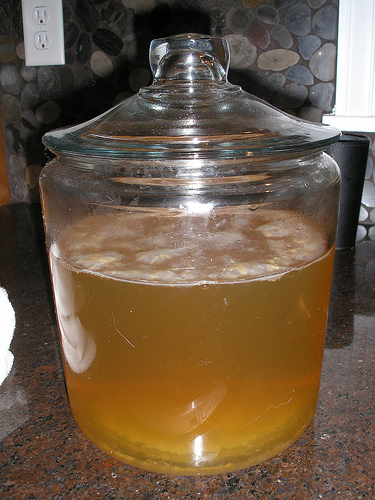ROBERTS What happened in graduate school? What areas of physics did you pursue?
MLODINOW I worked for a fellow who did mathematical physics, which are mathematical techniques or mathematical underpinnings of physics. There were very few spots for theorists at Berkeley and I was very happy to get one of them. This fellow was probably the smartest one in the department and very picky about his students so I was happy to be able to have him as an advisor.
ROBERTS What was his name?
MLODINOW Eyvind Wichmann.
ROBERTS So that was in your first year of graduate school? You impressed him enough to have him take you on as a student?
MLODINOW I think at the end of the first year, yes.
ROBERTS What happened in the first year?
MLODINOW It may have been the second year; I don’t remember now. I took his course in quantum field theory and then I became his TA in his quantum mechanics course.
ROBERTS He didn’t have many students, right?
MLODINOW No. He would have, at any given time, probably average one or two over the years. He was there for probably 30 years and may have had probably less than 30 students. Since they stay a few years that makes sense but he probably had 15 students; I’m just guessing in terms of who I at least had heard of.
ROBERTS What happened to the students before and after you–his students before and after you? The one before you and the one after you–do you know what they’re doing now?
MLODINOW Yes. There were the ones with me who graduated before and after. One of them is a very good friend–Mark Hillery–who’s a professor in Hunter College in New York and very well known in quantum information theory. He graduated just before me . . .
ROBERTS With the same advisor.
MLODINOW Yes, and the one who graduated just after me I think is a professor in Indiana or Kentucky or somewhere over there.
But it was quite a great class. Two of the other theory students are big leaders in string theory now, Joe Polchinsky and Andy Strominger. One post doc, Steven Chu, has a Nobel prize [and a White House appointment]. There were quite a lot of good young people around there at the time.
ROBERTS Yes, I’m trying to get a sense of what your career would have been like if you hadn’t gone into writing.
MLODINOW I imagine I would be professor at some school, who knows where. One of the things that I always cared about is where I live, so one of the downsides in academia is that you could be really good in your field and still end up in Peoria; nothing against Peoria but it just wasn’t my choice of where to live. You don’t get to choose where you’re live; you get chosen by these places. Even Santa Barbara; I don’t know how happy I would be there, even though it’s a great school, very good in physics but I’ve always liked Chicago, New York, Boston–big cities–Los Angeles, the Bay Area, really big metropolitan areas with ethnic components and a lot going on.
ROBERTS Yes, I feel the same way. My mother went to Berkeley because she wanted to be at a big school near a big city.
MLODINOW How happy I would be in Kentucky or Georgia or Minnesota, maybe, though you don’t know. One thing I learned from Gilbert’s book is you don’t necessarily know really what would make you happy. My German girlfriend at the time was telling me that, too–’Right now you think you need to be in a big city, but you may find other things in life later, your family, that you focus on.’ Certainly I’m here and I’m very focused on my kids but still what do we like to do? We like to into the Chinese parts of town and explore restaurants or the Mexican neighborhoods and look around or Vietnamese Town. We’ve got a lot of it here in Los Angeles and we like to go and find a new noodle shop.
Interview directory.

